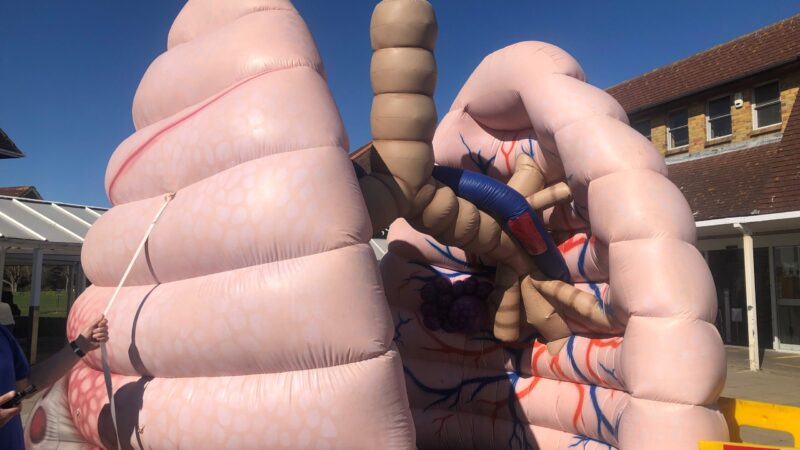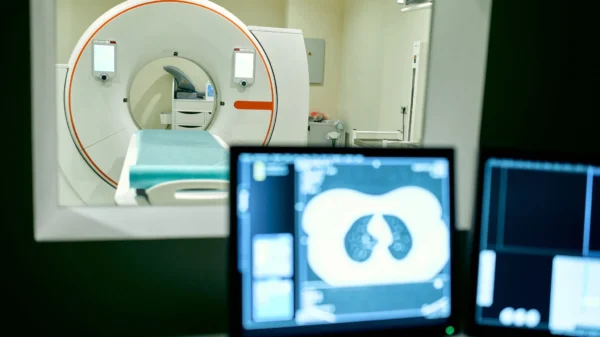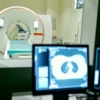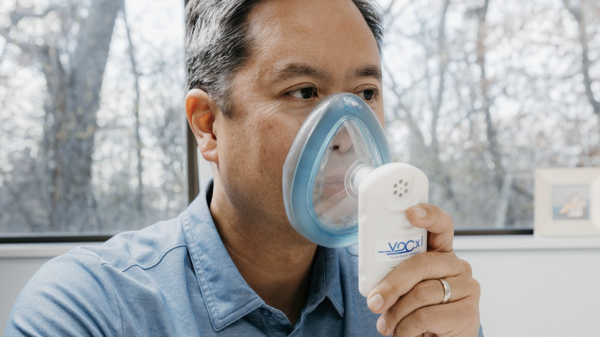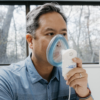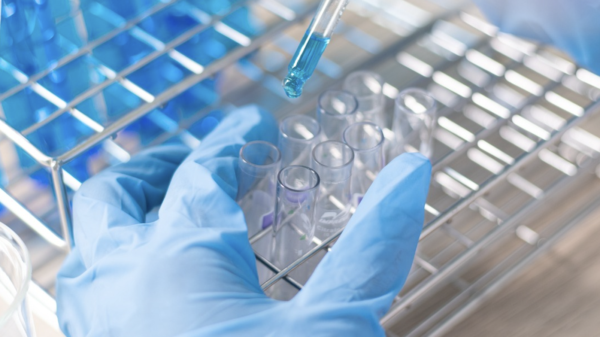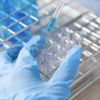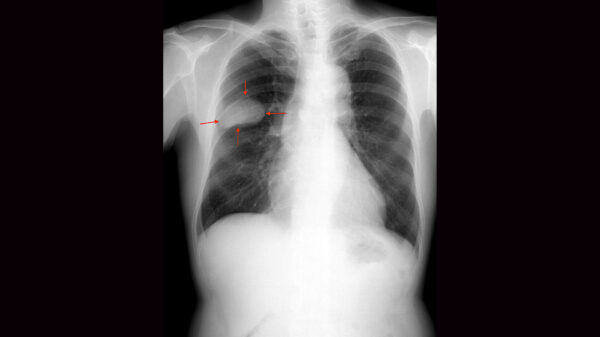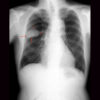The UK National Health Service is marking the launch of a lung cancer screening program in a local community by showing off a giant set of inflatable lungs.
They will make an appearance at Parker’s Piece park in Cambridge on Aug. 15 for six hours. The aim is raise awareness about the campaign with something visually memorable. The local initiative will start exactly two weeks after World Lung Cancer Day.
Aside from the 12-foot set of artificial lungs, the screening program is fairly standard. It targets current and former smokers between 55 to 74 years of age with low-dose CT scans. These machines are the current go-to among healthcare professionals for detecting the disease.
The NHS has estimated that there are approximately 98,000 citizens in that age group within the target area of Cambridgeshire and Peterborough.
In a news release from the organization, a local thoracic oncology professor and respiratory physician highlighted the importance of the new program.
“Lung cancer is the third most common cancer in the UK, but the leading cause of cancer deaths in the country due to late diagnosis,” said Robert Rintoul. “When diagnosed at a later stage, it can be difficult to treat and that is why the Lung Cancer Screening Programme aims to diagnose lung cancer at an earlier, more treatable stage.”
Identifying the disease in its earliest stages with the right equipment is of the utmost importance. Unfortunately, the low-dose CT scan machines used in the vast majority of global lung cancer screening programs emit radiation. Due to the high rate of false positive results these devices produce, unnecessary follow-up screening that can result can be harmful to patients.
Per estimates, approximately 10 to 27 per cent of patients who receive a low-dose CT scan need a second scan due to positive results or indeterminate findings. Of these, about 90 to 96 per cent are false positives, meaning that the nodules detected are benign/non cancerous. This means that roughly 17.5 per cent of all patients who have been screened once end up receiving a second scan and being exposed to additional radiation unnecessarily.
Thankfully, new minimally invasive screening tools that don’t emit harmful radioactivity have been gaining steam in the healthcare sector. Notably, the CyPath lung phlegm screening system developed by bioAffinity Technologies Inc (NASDAQ: BIAF); the OneBreath lung cancer breath test pioneered by Breath Diagnostics; and blood biopsies from companies like Cizzle Biotechnology Holdings PLC (LON: CIZ) and Grail Inc (NASDAQ: GRAL).
Read more: Breath Diagnostics leader speaks at lung cancer education event in Louisville
British lung cancer screening initiative ongoing for 6 years
The Lung Cancer Screening Programme that is making its way to Cambridge was originally launched in 2019 with a different name — the Targeted Lung Health Check Programme. It then re-branded in February.
This national initiative operates in over 40 sites throughout Britain and aims to reach full implementation by the end of the decade. By 2028, the goal is to identify three quarters of lung cancer cases in stage 1 or stage 2.
To date, the campaign has successfully identified the disease in over 5,500 citizens. Once in full swing by 2030, it could potentially detect 9,000 cases per annum. It costs the government about £270 million every year.
Read more: Breath Diagnostics takes aim at lung cancer with One Breath
Follow Rowan Dunne on LinkedIn
rowan@mugglehead.com

